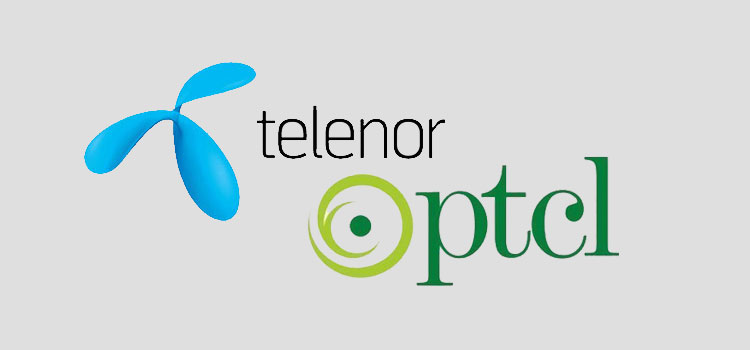The Competition Commission of Pakistan (CCP) has finally approved the integration of Ufone and Telenor Pakistan, but comes with a long list of green light conditions.
The regulator says it wants to make sure, since both companies combine their operations, competition in Pakistan’s telecom market does not weaken to the point where consumers and rival operators suffer.
Pakistan’s telecom industry has seen in the years that this is the biggest change. For more than a decade, four national mobile operators in this country have been competing for the market share. With this agreement, this number will shrink to three. Low operators can mean strong network and cost savings, but it can mostly be taxes and less choices for consumers.
The CCP’s job was to maintain balance, and he did so by attaching tough conditions.
This order makes it clear that Pakistan Telecommunications Company Limited (PTCL), who owns UFON and is getting Telenor Pakistan, should keep his business free.
Ufone and newly integrated company cannot share directors or administration. If an executive goes from one side to the other, they will have to wait three years. The purpose of this condition is to stop the “conflict of interests” and to ensure that both organizations do trade work, not personal, terms.
The leadership will also be under the microscope. The new mobile company must be run by professionals with solid telecom and digital experience. They will not only be measured on financial results, but will also measure the benefits of network performance, performance, and promise of integration. PTCL’s parents, Etisalat, will be held accountable to ensure that it provides professional administration.
One of the major focus of the CCP order is transparency on how the PTCL and the new mobile operator deal with each other. They should maintain audited, completely separate accounts, and submit quarterly reports. Any commercial arrangements between them, such as network sharing, lease or infrastructure, or bandwidth, should be fair, on the terms of the arm length. t
Oh, each other has been strictly prevented from determining hidden subsidies or discrimination prices. The important thing is that the Pakistan Telecommunications Authority (PTA) will need advance approval for the wholesale prices of services like bandwidth and lease.
To enforce them all, the CCP has ordered for five years free review. This review, which should be free from dispute and professionally, will receive reports at every quarter, monitor compliance, and flag the regulator for any violation. If the rules are broken, the CCP has the authority to impose fines or cancel the approval of the integration.
Companies cannot discriminate when the network, calling calls or sharing towers. They must provide all operators, including each other, on equal terms. Any change in mutual communication circuits should have PTA clearance. Infrastructure sharing will also be open to rivals, and existing sharing agreements should continue.
In addition, the integrated company has to open its network for virtual operators, known as MVNOS. These are companies that do not own towers or spectrums, but can still sell mobile services on network capacity. The move can help maintain consumer selection, even if the number of traditional operators drops.
Things also touch the purchase and operations. All new purchases of devices should be competitive and transparent. Network sites will require PTA approval to shut down or move. The existing agreements with other operators will be valid for at least three years unless the two sides agree.
Consumers have also not been forgotten. The integrated company cannot change the revenue without the PTA approval, and the standard of service quality. At the same time, the CCP expects the company to invest in innovation, including a 5G rollout. The message is clear: Lonely costs will not be enough. Consumers should see concrete improvement.
Finally, the CCP has asked the PTCL and the new mobile operator to make the benefits of integration, such as better coverage, high -speed data speed, and more reliable services, actually reach users. If these benefits are not implemented, or if the competition is damaged, the CCP has the right to impose further treatment. In the worst situation, it can also force PTC to sell parts of the business.
Why is it important to the public
For users, integration can mean strong network coverage and improved data speed as resources are mixed. Prices should not be increased overnight as PTA permission is needed in any revenue changes. However, low operators mean less competitive, so maintaining pressure on service quality and innovation will be critical.
Why is it important to the industry
Royal operators will closely monitor the rest of the festivals and infrastructure sharing to ensure. Conditions around the MVNOS can also open the door for new players, which can lead to fresh offers in the market. This is a test of the government and regulators, whether they can maintain the telecom sector and encourage stability.
The CCP decision is practical. Pakistan’s telecom sector is struggling with low income, rising costs and heavy investment requirements. 5G requires large, financially strong operators to maintain and maintain network stability. But the size comes with strength, and the electricity has to be examined. The purpose of these conditions is to provide Pakistan with the best of the two worlds: a strong operator but with rules for the protection of competitiveness.
The actual result will depend on two things: whether the integrated company stays on the rules and genuinely improves services, and whether regulators are vigilant in implementing security arrangements. If both are, this merger can strengthen Pakistan’s telecom industry without hurting consumers.

